Question And Answer
Publications
Articles, publications, books, tools and multimedia features from the U.S. Institute of Peace provide the latest news, analysis, research findings, practitioner guides and reports, all related to the conflict zones and issues that are at the center of the Institute’s work to prevent and reduce violent conflict.
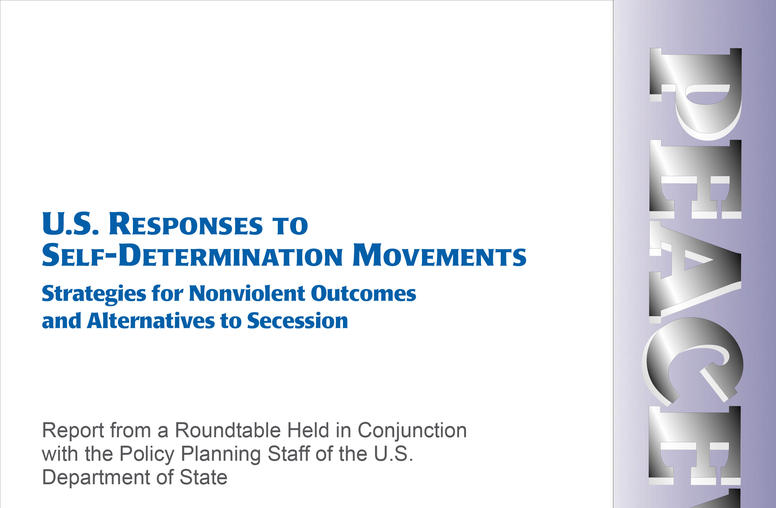
U.S. Responses to Self-Determination Movements: Strategies for Nonviolent Outcomes and Alternatives to Secession
The right to self-determination is proclaimed by numerous international documents, including the United Nations Charter and the Helsinki Final Act. However, this right has never been precisely defined and has thus come to denote different things to different peoples and governments at different times.
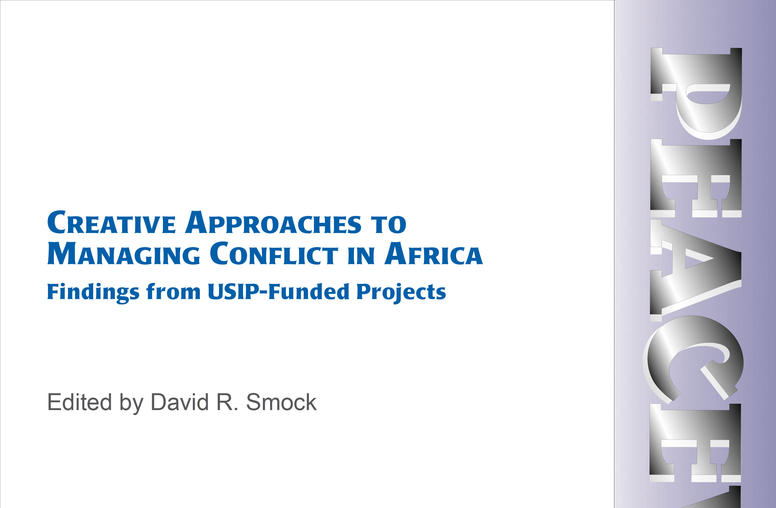
Creative Approaches to Managing Conflict in Africa: Findings from USIP-Funded Projects
The purpose of this report is to share some lessons of projects which have identified or implemented innovative approaches to managing Africa's conflicts, and examine their potential applicability to other conflicts there or elsewhere.
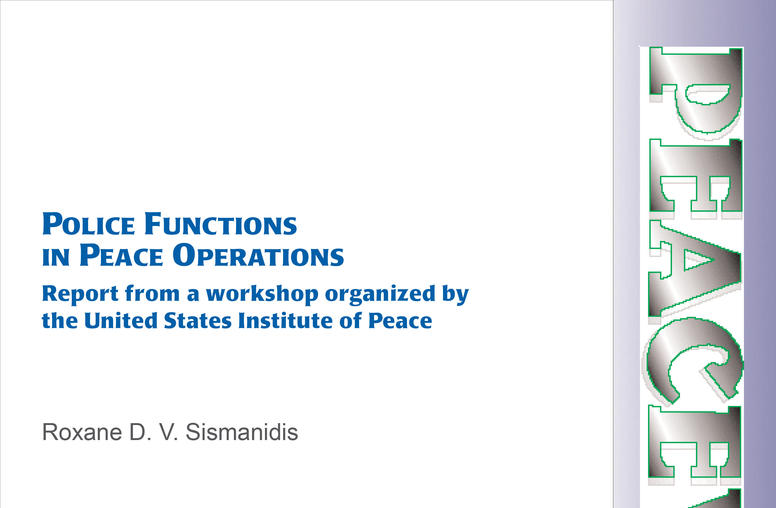
Police Functions in Peace Operations: Report from a workshop organized by the United States Institute of Peace
Much of the current debate on police functions in peace operations is informed by a distinct set of strategic and policy concerns that have acquired special prominence in the 1990s, as these operations have grown increasingly complex because of their deployment in countries whose societies have completely collapsed. The United States Institute of Peace decided to address these issues in view of its ongoing work on the rule of law and other postconflict issues.
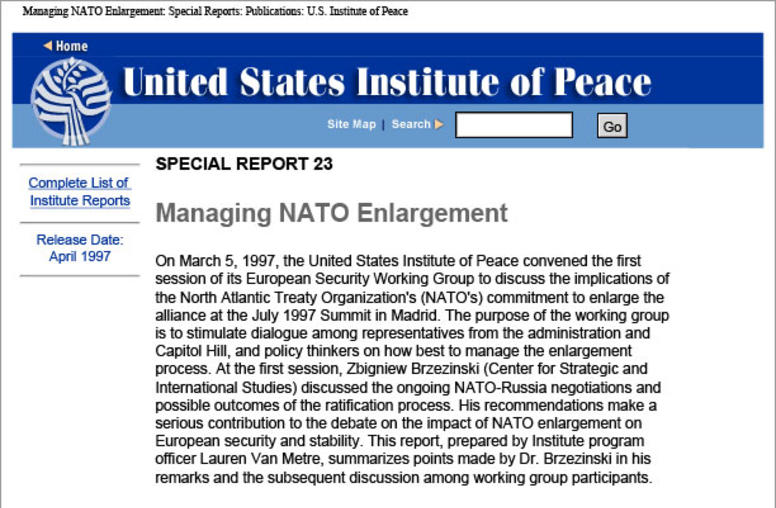
Managing NATO Enlargement
On March 5, 1997, the United States Institute of Peace convened the first session of its European Security Working Group to discuss the implications of the North Atlantic Treaty Organization's (NATO's) commitment to enlarge the alliance at the July 1997 Summit in Madrid.
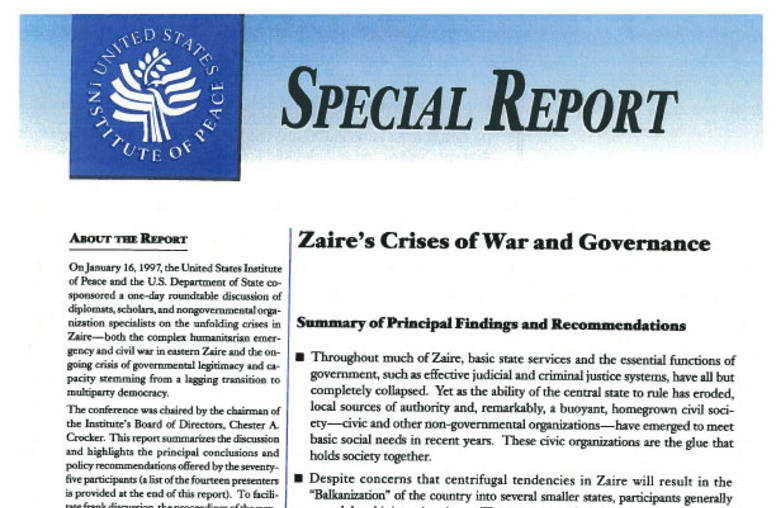
Zaire's Crises of War and Governance
On January 16, 1997, the United States Institute of Peace and the U.S. Department of State cosponsored a one-day roundtable discussion of diplomats, scholars, and nongovernmental organization specialists on the unfolding crises in Zaire-both the complex humanitarian emergency and civil war in eastern Zaire and the ongoing crisis of governmental legitimacy and capacity stemming from a lagging transition to multiparty democracy.
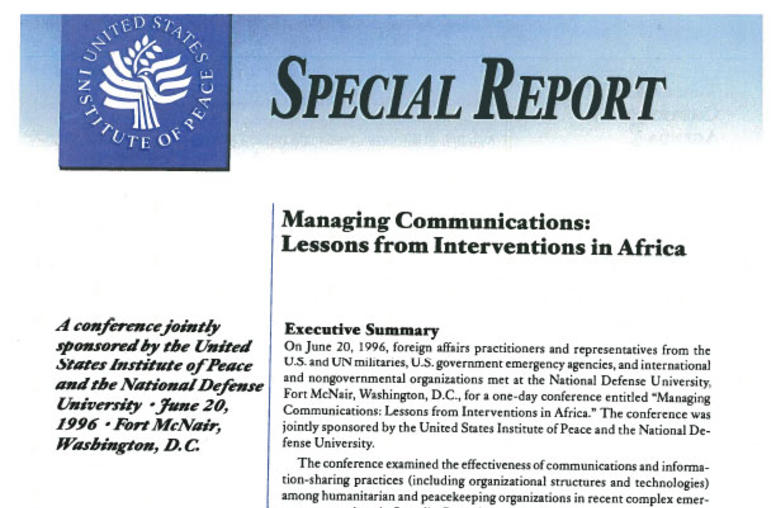
Managing Communications: Lessons from Interventions in Africa
"Managing Communications: Lessons from Interventions in Africa," the conference was jointly sponsored by the United States Institute of Peace and the National Defense University. It examined the effectiveness of communications and information-sharing practices (including organizational structures and technologies) among humanitarian and peacekeeping organizations in recent complex emergency operations in Somalia, Rwanda, and Liberia.
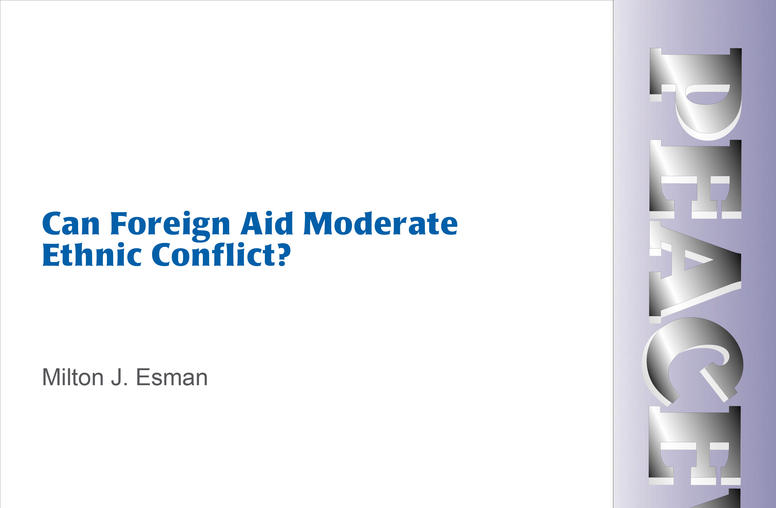
Can Foreign Aid Moderate Ethnic Conflict?
Since World War II, a complex network has emerged of bilateral and multilateral agencies that manage economic assistance to low-income countries in the form of investment projects, policy advice, and technical assistance. Although each of these agencies has its distinctive personality, most of them have avoided facing up to the post–Cold War reality of burgeoning ethnic conflict.
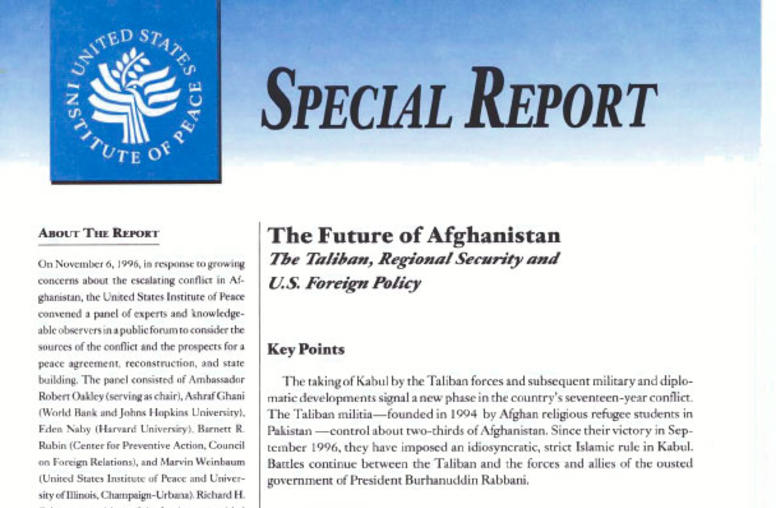
The Future of Afghanistan: The Taliban, Regional Security and U.S. Foreign Policy
In response to growing concerns about the escalating conflict in Afghanistan, the United States Institute of Peace convened a panel of experts and knowledgeable observers in a public forum to consider the sources of the conflict and the prospects for a peace agreement, reconstruction, and state building.
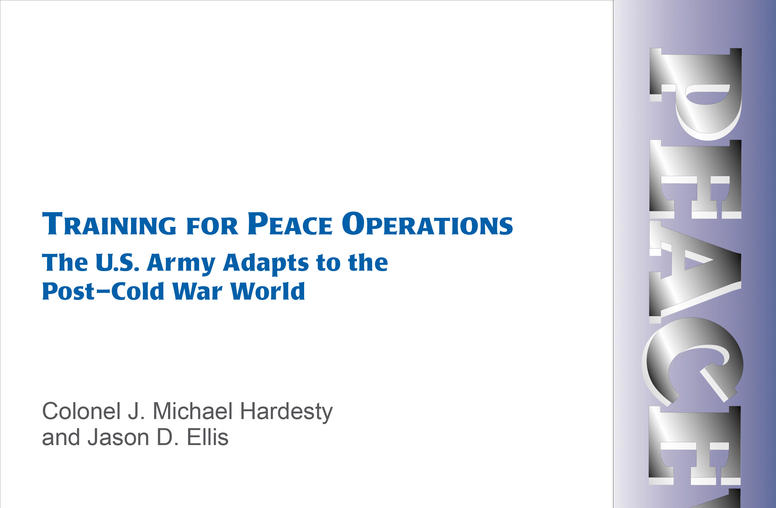
Training for Peace Operations: The U.S. Army Adapts to the Post-Cold War World
When the United States Institute of Peace announced a joint fellowship program with the U.S. Army War College, some observers unfamiliar with the Institute's work noted an apparent irony: Why should an organization devoted to the peaceful resolution of international conflict work with an institution whose main job is fighting wars?
Truth Commission: Guatemala
Truth Commission: Commission for Historical Clarification Duration: 1997 – 1999 Charter: Agreement on the establishment of the Commission to clarify past human rights violations and acts of violence that have caused the Guatemalan population to suffer, June 23, 1994 Commissioners: 3 Report: Public report